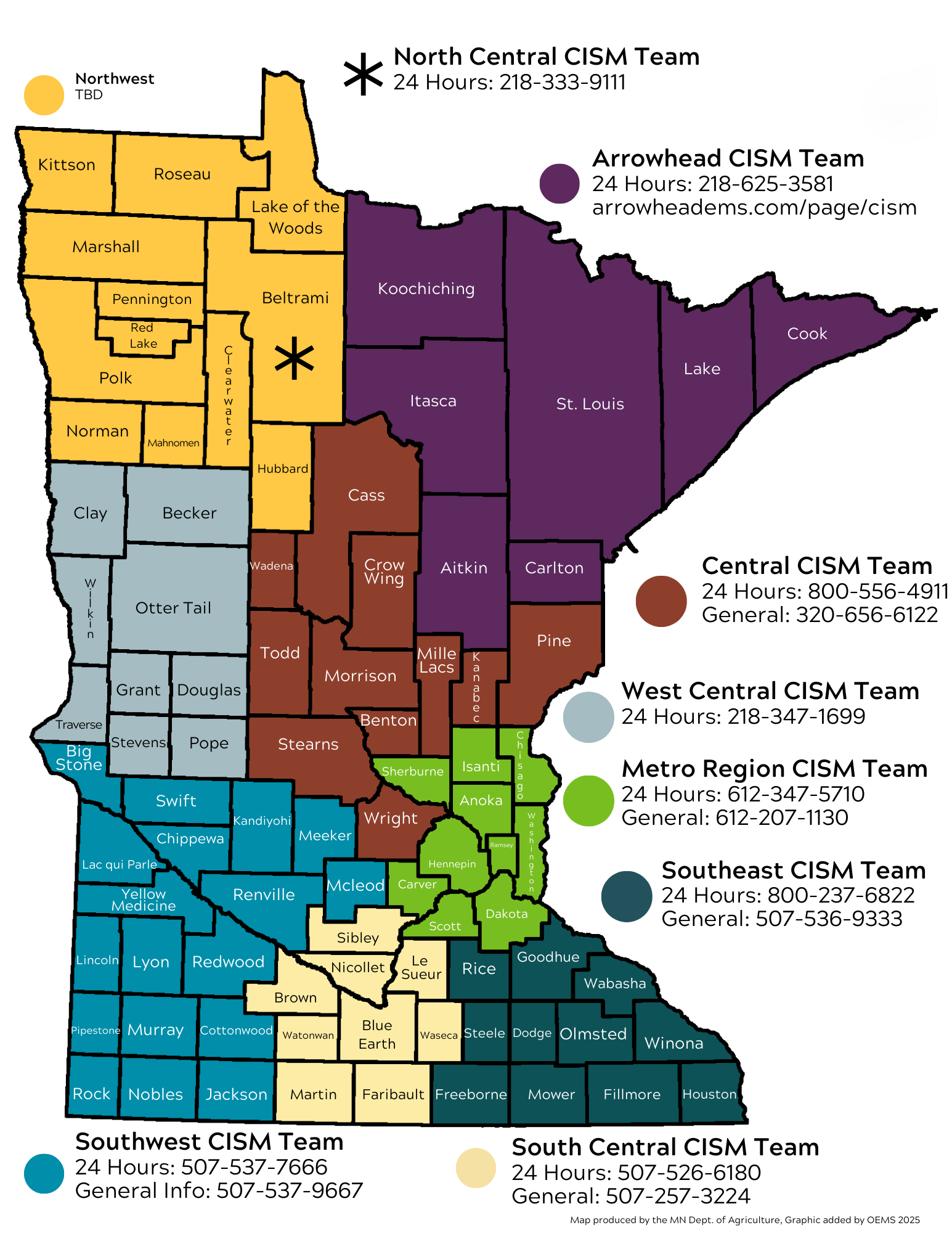Critical Incident Stress Management - CISM
Critical Incident Stress Management (CISM) for EMS
EMS professionals—including law enforcement, dispatch, ambulance, fire/rescue, and hospital staff—routinely encounter traumatic events as part of their work. A critical incident is any event that goes beyond ordinary human experiences, often triggering strong emotional, mental, physical, or spiritual stress reactions. While these reactions are a normal response to abnormal situations, they can sometimes require additional support to manage effectively.
Critical Incident Stress Management (CISM) provides tools and support to help EMS personnel and teams process the impact of traumatic events. One key component of CISM is Critical Incident Stress Debriefing (CISD).
What is Critical Incident Stress Debriefing (CISD)?
CISD is a structured, confidential group process led by behavioral health professionals and trained emergency service peers. It is designed to help those involved in a critical incident understand and process their thoughts, emotions, and reactions. CISD is:
- Confidential: Participation is limited to those directly involved in the incident.
- Timely: Typically conducted 24 to 72 hours after the incident, though it remains effective even if done later.
- Supportive: Focused on helping participants process their experience rather than critiquing the event or response.
By providing a safe space for discussion, CISD can help normalize stress reactions, reduce feelings of isolation, and promote emotional recovery.
How CISD Helps
CISD offers several benefits for EMS personnel, including:
- Reducing the impact of critical incident stress.
- Encouraging connection and interaction with others who were involved.
- Providing a nonjudgmental space to share experiences.
- Normalizing stress responses through education.
- Helping prevent delayed psychological challenges.
- Strengthening coping skills for future incidents.
CISM Teams in Minnesota
Minnesota now has eight CISM teams located throughout the state to support EMS professionals, with one team dedicated to serving the North Central region. These teams are available to help individuals and organizations manage the stress and trauma associated with critical incidents. If you or your team is struggling after a traumatic event, reaching out to a CISM team can make a meaningful difference in recovery and well-being.
The map below provides detailed information about the locations and contact details for each of the eight CISM teams. Use this resource to connect with the team nearest you for support.
EMS personnel are dedicated to providing care during others’ most difficult moments. It’s equally important to care for yourselves and each other. CISM and CISD are here to ensure you can continue to serve Minnesotans while protecting your own health and resilience.


